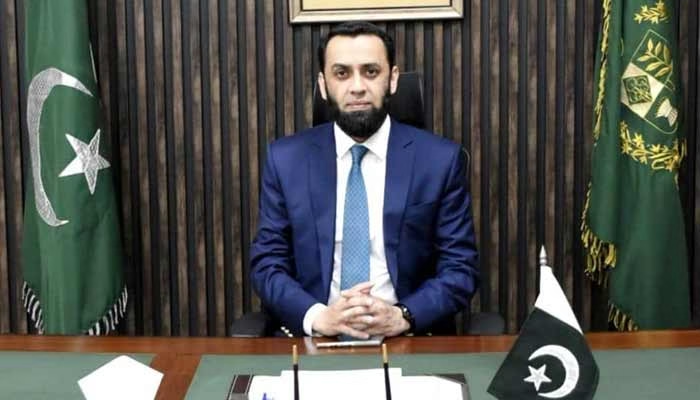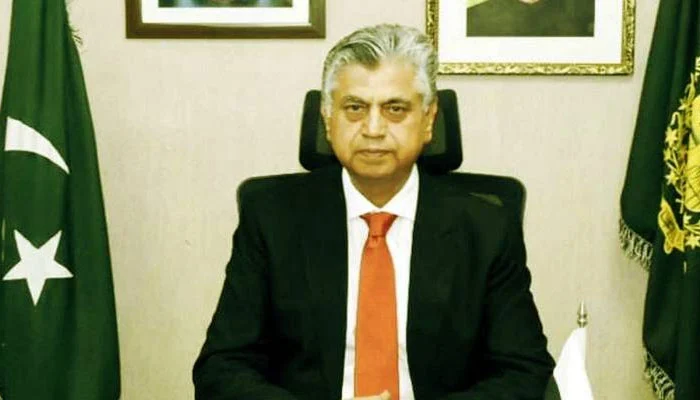Tensions between Islamabad and Kabul have once again intensified as Pakistan has urged Afghanistan to take immediate action against terrorists operating from its soil. According to the Ministry of Information, Islamabad has made it clear that terrorists based in Afghanistan must either be arrested or controlled to ensure regional peace and stability. The statement came after the Afghan Taliban spokesperson, Zabihullah Mujahid, made claims that Pakistan had refused Kabul’s offer to deport suspected militants during the Istanbul peace talks — a claim Pakistan strongly rejected.
Pakistan Rejects Kabul’s Claims
The Ministry of Information stated that Pakistan’s stance during the Istanbul talks was misrepresented by the Afghan Taliban. Islamabad clarified that when Kabul claimed the suspected militants were Pakistani nationals, Pakistan proposed that such individuals should be handed over through official border crossings. The ministry stressed that “any claim to the contrary is false and misleading.” This response highlighted Pakistan’s firm position on counterterrorism and its demand for credible action from the Afghan side.
Background of the Tensions
The latest exchange of statements came amid fragile ceasefire efforts between Pakistan and the Taliban regime. The two countries have held multiple rounds of peace talks, including the most recent one in Istanbul, following a series of violent cross-border incidents. Pakistan has long accused Afghanistan of allowing groups like Tehreek-e-Taliban Pakistan (TTP) to operate freely within its territory and launch attacks against Pakistani forces and civilians.
The Afghan Taliban, however, denied these allegations, claiming that Pakistan’s security challenges are internal. Mujahid asserted that Afghanistan’s policy prohibits migrants from carrying weapons and that Kabul would take action if Islamabad provided verifiable evidence.
Islamabad’s Firm Response
Federal Minister for Information Attaullah Tarar emphasized that Pakistan’s call for controlling or arresting terrorists based in Afghanistan reflects its consistent stance on counterterrorism. The government maintains that Afghanistan must not serve as a safe haven for groups attacking Pakistan. Tarar’s statement on social media reiterated that Islamabad seeks peace but will not tolerate cross-border terrorism under any circumstances.
Defence Minister Khawaja Asif also condemned what he described as “malicious and misleading” remarks from the Afghan Taliban’s spokesperson. He stated that Pakistan’s civil and military leadership remains united in its approach toward Afghanistan and its security policies.
Pakistan’s Concerns Over Cross-Border Terrorism
Since the Taliban took control of Kabul in 2021, Pakistan has witnessed a sharp rise in terror attacks, especially in Khyber Pakhtunkhwa (KP) and Balochistan. Islamabad has consistently raised concerns about the TTP and other militant organizations operating from Afghan soil. Officials argue that the Taliban regime’s reluctance to act against these groups has jeopardized regional peace and Pakistan’s national security.
The October 12 cross-border firing incident further escalated tensions between the two countries. The Pakistan Armed Forces responded with decisive action, killing over 200 militants, though 23 Pakistani soldiers were martyred in the clashes. Subsequent military operations also targeted terrorist hideouts inside Afghanistan.
Temporary Ceasefire and Ongoing Negotiations
Despite ongoing tensions, both nations agreed to a temporary ceasefire on October 17 following mediation by Qatar. The agreement led to a new round of dialogue, with delegations from Pakistan and Afghanistan meeting first in Doha and later in Istanbul. Although the talks aimed to de-escalate hostilities, no concrete breakthrough was achieved, as the Taliban reportedly refused to provide verifiable guarantees ensuring that Afghan soil would not be used for attacks against Pakistan.
However, Pakistan’s willingness to participate in multiple rounds of dialogue underscores its commitment to a peaceful resolution. The next round of talks between the two sides is scheduled for November 6, with Turkey once again expected to play a mediating role.
Khawaja Asif’s Strong Words on the Afghan Regime
In his statement, Defence Minister Khawaja Asif accused the Afghan Taliban regime of harboring groups that promote instability and violence. He alleged that the regime suffers from deep internal divisions and continues to oppress ethnic minorities, women, and children. According to Asif, the Taliban’s inability to deliver on governance, representation, and basic human rights has forced them to rely on external narratives to mask their shortcomings.
He further warned that Pakistan’s people, especially those living near the Afghan border, are fully aware of the regime’s barbaric patronization of India-sponsored terrorism.The minister reiterated that Pakistan will defend its sovereignty and security interests while continuing to advocate for peace and cooperation in the region.
The call from Islamabad to arrest or control terrorists based in Afghanistan reflects a growing urgency for Kabul to take tangible steps toward peace. With rising terror incidents and deteriorating trust between the two neighbors, the success of the upcoming negotiations will largely depend on the Taliban’s willingness to curb militant activity.
Pakistan’s firm yet diplomatic stance shows that while the country remains open to dialogue, it is equally prepared to defend its borders and citizens. The call for controlling terrorists based in Afghanistan is not just a demand but a prerequisite for sustainable peace and regional stability.
If Kabul responds with sincerity, the ongoing peace talks could pave the way for mutual cooperation. But if the Taliban regime continues to ignore Pakistan’s concerns, tensions may once again spiral into open confrontation — a scenario neither nation can afford amid growing regional challenges.



